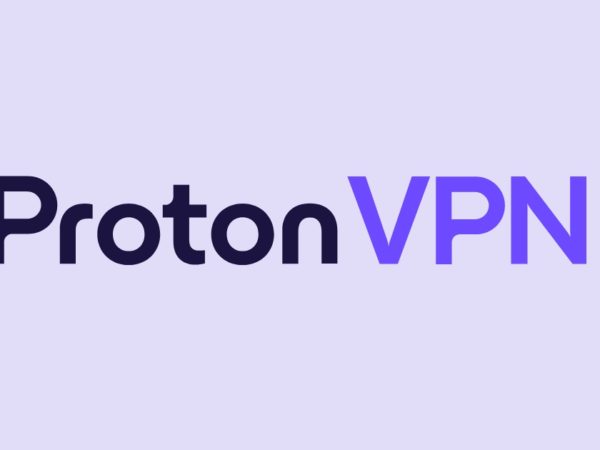A must-have feature to ask for when shopping for VPNs is server obfuscation. Let’s quickly learn about it and see what its absence means for you.
VPNs aren’t niche products anymore. People deploy them personally and for their businesses for many reasons, including privacy, geo-unblocking, security, entertainment, etc.
However, all VPNs aren’t as privacy friendly as they advertise, and some free ones are a total disaster for user anonymity.
And while most VPNs share a similar spec sheet, server obfuscation sets a few ahead of the rest.
VPN Server Obfuscation
Remember why we use VPNs?
To hide–from governments, ISPs, cybercriminals, etc. A VPN user wants to be left alone without any snooping attempts from the aforementioned actors.
And VPNs ‘try’ to ensure such privacy measures with their encryptions. However, encrypting data with a few VPN protocols gives out some patterns which differentiate it from regular internet traffic.
Consequently, it reveals the VPN use, laying waste to a user’s intent of being anonymous. When exposed, such users can face unnecessary scrutiny, reduced speeds, blockades, or even legal troubles if their country has blacklisted VPN usage.
Still, there is hope if you have server obfuscation.
How Does it Work?
Consider VPN obfuscation as a layer of encryption hiding the actual VPN encryption. It randomizes the internet traffic to appear as ‘standard’ to help it pass through the VPN firewalls.
This is it.
More technically, a snooper can use deep packet inspection using tools such as Wireshark to know the VPN protocol underpinning the connection. This helps them confirm VPN usage.
But when someone uses VPN obfuscation along with the ‘standard’ VPN connection, it jumbles up the connection metadata and helps it pass like regular traffic, typically using many protocols (HTTPS, UDP, TCP, etc.) at once.
These generalized patterns mask the underlying VPN, giving true anonymity.
Server obfuscation is achieved by various methods, some of which are:
- Shadowsocks
- Stunnel
- XOR Scramble
- Obfsproxy
#1. Shadowsocks
Originally developed by a Chinese developer to circumvent The Great Firewall, Shadowsocks is one of the fastest ways to spoof your geolocation. It’s a web proxy based on SOCKS5 protocol.
When coupled with VPN encryption, it sheds the usual demerits associated with standard proxies and becomes one of the best solutions to obfuscation, disguising VPN traffic as regular HTTPS data packets.
#2. Stunnel
Stunnel is a proxy implementation using the OpenSSL cryptographic library and is compatible with any algorithm using the same protocols.
Consequently, Stunnel can work hand-in-hand with OpenVPN, a widely used VPN protocol, to mask the standard VPN traffic with TLS encryption.
#3. XOR Scramble
This obfuscation method uses an XOR key via a 3rd-party patch and is deployed in conjunction with OpenVPN for sneaking through VPN blocks.
Notably, OpenVPN developers advise against using this XOR patch, considering the lack of rigorous testing. However, some VPN providers still do it anyway with their own modifications, citing the ease of implementation.
#4. Obfsproxy
Obfsproxy is developed by the Tor community and can also be used by other VPN protocols, including OpenVPN.
While this works for this purpose, it may suffer from over-randomized data getting caught in the act. Still, this is an open-source project and can be modified to obfuscate just enough to evade any detection tests.
So, these were some of the methods VPN providers use to implement server obfuscation.
However, it’s important to note that obfuscation isn’t guaranteed to work 10 out of 10 times.
Still, this is your best bet against the notorious firewalls. Let’s check if a few VPN providers have this premium functionality.
Please note I won’t repeat a few industry-standard features like AES-256-bit encryption, split tunneling, etc. However, you will be notified about note-worthy specialties or any major lacking.
NordVPN
NordVPN is a top-rated VPN that allows you to obfuscate through internet barriers. You can use this feature by selecting OpenVPN protocol and then picking any obfuscated server.
While it can be an issue for some users since obfuscation isn’t available with every server, NordVPN’s 30-day money-back guarantee, like most other VPN providers, is there to the rescue.
Besides, NordVPN is a power-packed choice having a gigantic user base and is often lauded for unblocking streaming platforms.
It lets you connect six devices per subscription and also comes with advanced features like Tor over VPN, private DNS, etc.
ProtonVPN
ProtonVPN is my personal favorite, with a beautiful user interface, a forever-free version, blazing fast speeds, and a ton of privacy-respecting features. Besides, it has been founded by some of the best privacy advocates.
Today, we’re introducing Stealth, our new custom-built anti-censorship protocol for Proton VPN. As surveillance around the world has grown, we’ve built a completely new protocol capable of bypassing internet censorship in authoritarian regimes: https://t.co/VY1Bl5x2qW pic.twitter.com/QL09UJozZA
— Proton VPN (@ProtonVPN) October 11, 2022
ProtonVPN has developed its protocol, Stealth, to fight against censorship. So, this is super simple, and all you have to do is select Stealth in the protocol section.
In addition to obfuscations, ProtonVPN comes loaded with Tor over VPN, double VPN, a native adblocker, private DNS, and more, making it a top contender in the entire VPN industry.
Finally, ProtonVPN offers a generous 10-device limit per subscription.
Check our detailed ProtonVPN review.
Surfshark
Surfshark has merged its obfuscation solution with OpenVPN protocol, and its users can benefit just by switching to that.
Another highlight feature is its native adblocking and ultimate unlimited devices per subscription policy.
Though you can subscribe just to this VPN, there is a Surfshark One package, including an antivirus, a search engine, and its hack-alert monitor.
ExpressVPN
The entertainment-heavy ExpressVPN is more secretive about its obfuscation than the ones listed above. This comes with default obfuscation capabilities, and you can contact its support if it’s not working out for you.
ExpressVPN is known for its exceptional speeds, geo-unblocking prowess, and industry-leading price tag.
Yes, it’s one of the most expensive VPNs on the market. Yet, people opt for ExpressVPN for its sheer fluidity and the feature set that works more often than not.
It offers a decent five-device connection per subscription.
You can take a deep look at it with our detailed ExpressVPN review.
The need of the hour!
While it was a fancy thing to talk about some time back, obfuscation should be an integral part of all VPNs.
But that’s not the case. Still, quite a few give you this advantage to go truly anonymous. In addition to the listed, you can also check out Astrill VPN for server obfuscation.
You may also explore some reliable VPNs for small to medium businesses.



